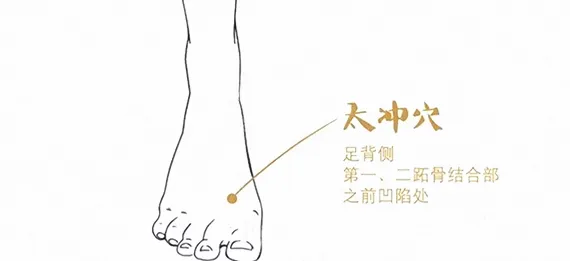
 What is Yin Deficiency with Excess Heat?
What is Yin Deficiency with Excess Heat?

The primary function of Yin is to nourish and moisten the organs, while also restraining Yang to prevent its excessive outward expression. Yang is characterized by heat, movement, and elevation, whereas Yin corresponds to cold, stillness, and descent. When Yin is deficient and unable to restrain Yang, the body may exhibit a state of excess Yang, leading to what is known as “Yin deficiency generates internal heat.”
Yin Deficiency with Excess Heat can affect different organs, primarily manifesting in clinical conditions related to the heart, lungs, liver, and kidneys. Common symptoms include dry throat and mouth, irritability, excessive heat, a red tongue with cracks, little or no coating, and a thin, rapid pulse.

 What Symptoms are Associated with Yin Deficiency and Excess Heat?
What Symptoms are Associated with Yin Deficiency and Excess Heat?


1Restlessness and Insomnia
Insomnia may not always be due to Yin deficiency, but Yin deficiency will certainly cause insomnia. Individuals with Yin deficiency often experience excessive liver fire at night, with insufficient kidney Yin to nourish the body and mind, leading to a conflict between water and fire, resulting in restlessness, vivid dreams, difficulty falling asleep, night sweats, and possibly nocturnal emissions, with short sleep duration.
2Weight Loss
Those with Yin deficiency may have excessive stomach fire, allowing them to eat and drink well, but their metabolism is fast, making it difficult to gain weight. They may appear lean with relaxed muscles.
Additionally, individuals with Yin deficiency often have insufficient blood and fluids, feeling as if they are in a furnace, leading to severe dehydration, dry skin, dry and painful eyes after prolonged use, dry hair prone to static, and dry mouth and throat. Even with frequent hydration, these issues may persist, easily leading to constipation.
3Irritability and Anger
People with Yin deficiency have abundant fire energy, leading to irritability and anger, which can further exacerbate liver fire, depleting kidney water and worsening Yin deficiency symptoms, resulting in mood swings.
4Heat in Hands and Feet
Individuals with Yin deficiency have excessive internal heat, leading to “five hearts heat” where body temperature is normal, but the palms and soles feel hot, even in winter.

5Dizziness and Fatigue
Insufficient body fluids lead to poor nutrient absorption and are consumed by excessive fire, resulting in weakness and dizziness.
6Other Symptoms
Afternoon heat surges, or night sweats, heat that does not want to be covered, hot palms and soles, or bone steaming heat, irritability, insomnia, vivid dreams, flushed cheeks, night sweats, dry mouth and throat, dry and hard stools, scanty yellow urine, dry red tongue or with cracks, little or no coating, and a thin rapid pulse. There may also be recurrent oral ulcers, pain, dizziness, and lower back weakness.

 What Should One Eat to Regulate Yin Deficiency with Excess Heat?
What Should One Eat to Regulate Yin Deficiency with Excess Heat?

Yin Deficiency with Excess Heat is a diagnosis based on TCM principles, primarily managed through traditional Chinese medicine and herbal methods, with recommendations to nourish Yin and clear heat. It is also important to adjust one’s mindset, maintaining emotional stability and calmness. The following dietary therapies are recommended for those with Yin Deficiency and Excess Heat, which can nourish Yin and regulate the spleen and stomach:
1Asparagus Soup
60 grams of asparagus and 100 grams of rice. Boil the asparagus to extract the juice, strain it, and then cook the rice to make porridge for breakfast.
2Rehmannia Porridge
150 ml of fresh rehmannia juice (or 150 ml of concentrated rehmannia decoction) and 100 grams of rice. Cook the rice to make porridge, then add the rehmannia juice when the porridge is ready, stirring well before consumption.

3Lily Porridge
50 grams of fresh lily, 100 grams of rice, and an appropriate amount of rock sugar. First, cook the rice to make porridge, then add the lily when it is cooked, and sweeten with rock sugar before consumption. If fresh lily is unavailable, 30 grams of dried lily powder can be used instead, cooked with the rice.
Individuals with Yin deficiency should consume more cooling and nourishing foods, such as sesame, glutinous rice, honey, dairy products, sugarcane, vegetables, fruits, tofu, and light fish dishes. They can also enjoy porridge made from sand ginseng, lily, goji berries, mulberries, and yam.
Additionally, foods like bird’s nest, tremella, sea cucumber, mussels, crab meat, cordyceps, and old male duck are beneficial. It is advisable to limit spicy and dry foods such as scallions, ginger, garlic, leeks, chives, and peppers.

 Massage or Moxibustion for Regulation
Massage or Moxibustion for Regulation


Insomnia is a major contributor to the vicious cycle of Yin deficiency symptoms. Poor sleep can easily lead to excess heat, and long-term sleep deprivation is a significant factor in damaging Yin. Therefore, addressing sleep issues is crucial. How can one regulate this? By massaging or using moxibustion on the Tai Chong (Liver 3) point.
The Tai Chong point is located at the depression on the dorsum of the foot, between the first and second toes. Spend 10 minutes each night before bed massaging this point, aiming for a noticeable sensation of soreness, numbness, swelling, or pain.
Those who are usually irritable or have excessive fire energy, as well as those who tend to bottle up their emotions, will find that regularly massaging the Tai Chong point can help improve their mood and alleviate insomnia symptoms. Additionally, the Ran Gu (Kidney 2) point can also help to elevate clear energy and balance water and fire, making it suitable for patients with Yin deficiency and excess heat.
Image sources are from the internet; please contact us for removal if there are any copyright issues.


Editor: Hong YanReviewer: Wang Shoushi

